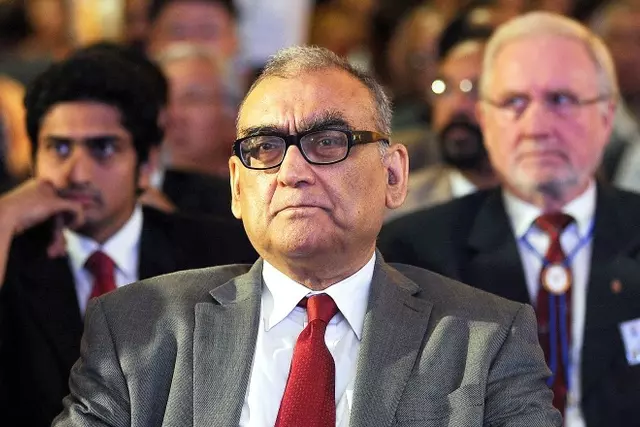Fareed Zakaria ( born January 20, 1964) is a well known Indian-born American journalist, political commentator, and author, who lives in New York. He is the host of CNN’s Fareed Zakaria GPS show
Recently he has written a book titled ‘Age of Revolutions : Progress and backlash, 1600 to the present’, about which he was interviewed on TV :
I regret I found the book totally superficial and inane.
The first part of the book deals with revolutions like the Industrial Revolution which fundamentally restructured the socioeconomic political basis of societies, from feudalism to industrial societies. Political reforms gave every citizen the vote, and women got emancipation.
The second part of the book looks at our current situation, arguing that we are living in another age of revolutions, the Globalization Revolution ( i.e. free trade ), the Information Revolution, the Digital Revolution, and the Cultural Revolution.
Change is coming at us more and more rapidly. But change, writes Zakaria, inevitably provokes a “deep backlash” because “freedom and autonomy” come at the expense of “authority and tradition”.
With the advent of the internet and social media, we celebrated its potential to connect the world and resurrect communities. But while we may be more connected than ever, studies say we are also more lonely and more anxious.
Waves of migration to US and to the West are accelerating because of poverty, and political instability. No single issue animates modern populism as much as uncontrolled migration. To the average citizen it appears to be unmanageable. This anxiety is central to populist movements, both right and left. Zakaria says Western leaders need to reform and agree on an immigration regime that is seen by all as rules-based and fair.
Change also affects geopolitics. Even if Xi Jinping and Vladimir Putin believe that democracies are spent, they worry about the influence of ‘Western values’ and so they are reasserting national interests and culture over democracy, cosmopolitanism and globalization.
Looking at the historical record, Zakaria observes that the end result of the violent upheavals and imposition of radical ideas from above that characterized the French, Russian, and Chinese revolutions was social chaos, widespread violence and, ultimately, dictatorship. Zakaria says change needs to be gradual and organic. He offers policymakers this advice:
“Don’t impose change from above. Instead, work within the fabric of society, with actual communities and people, to educate, persuade, and convince them of your cause. Don’t give up on freedom of speech just because at any given moment you despise a message that is spreading far and wide. Don’t be seduced by identity politics—which is fundamentally illiberal, viewing people as categories rather than individuals. Moving too quickly and too forcefully will often cause more backlash than progress. Accept that compromise is an inevitable aspect of democracy—indeed, that it is a virtue because it takes into account the passions and aspirations of others.”
Zakaria offers a series of prescriptions to help democracies strengthen family, community and national bonds: To bolster family life he recommends free preschool, subsidized child care, and paid parental leave; to connect neighbours, he argues for local community centers, investing in local schools, and promoting civic participation; to bind nations, he makes the case for national service following high school that would include community and civic responsibilities, working in schools and hospitals, as well as the uniformed services.
With due respect to Fareed Zakaria, his analysis is totally superficial, and his suggested remedies are nothing but empty platitudes and meaningless homilies. Here are the cardinal points he totally misses :
The 21st century is characterised by two main features: (1) People’s struggles in underdeveloped countries and (2) Conflicts between alliances of developed countries.
As regards the first, these struggles are for making their countries developed ones, so that their people may enjoy decent lives and a high standard of living, instead of living in the miserable conditions in which they are presently living..
Before the Industrial Revolution, which started in England around the beginning of the 18th century, and then spread to France, Germany, America and many other parts of the world, there were feudal or tribal societies in most parts of the world.
In feudal societies the methods and tools of economic production were so backward and primitive that very little wealth could be generated by them. In much of Asia the bullock or buffalo, and in Europe the horse, was used for tilling the land ( there were no tractors then ). Consequently so little wealth was generated by the feudal method of production that only a handful of people (kings, aristocrats, etc) could be rich, while the remaining vast majority (mostly peasants) had to live in abject poverty and ignorance. When the cake is small very few people can eat it.
(The above statement must, however, be qualified with a caveat that during the Mughal and Chinese empires, handicraft industry had grown enormously, even though the countries were feudal, so that a considerable number of people, mainly artisans, had risen above abject poverty).
https://timesofindia.indiatimes.com/blogs/satyam-bruyat/dinner-at-the-german-embassy-sunday-7-9-2014
This situation drastically changed after the Industrial Revolution. Now a unique situation has developed in world history: now no one in the world need be poor. This is because modern industry is so big and so powerful that enough wealth can be created to give everyone in the world a decent life. If society is organised on scientific lines, everyone can get jobs with good incomes, nutritious food,, healthcare, education, housing, etc. No one need be poor.
Realizing this, people all over the world are demanding that they, too, be given decent lives. The sad fact, however, is that the overwhelming majority of the people of the world, particularly in underdeveloped countries, are still poor, many extremely poor, and their numbers are increasing.
Why is this so? After all, almost 300 years have expired since the beginning of the Industrial Revolution. By now poverty, unemployment, hunger, etc., should have been abolished everywhere in the world. Why has that not happened?
The reason is that soon after the Industrial Revolution, a handful of countries in western Europe quickly industrialised and grew relatively prosperous, but did not let others follow suit, thinking the latter would become economic rivals. In fact, their industrialisation was aided by plunder and loot of their colonies, as England did in India, leaving the latter far poorer.
There are, in fact, now two worlds in the globe: the developed world of North America, Europe, Japan, Australia and China and the underdeveloped world of Asia (except China and Japan), Africa and Latin America.
The developed countries have a secret, unwritten rule ( which they will never openly speak about ), which is not to allow underdeveloped countries to become developed, as that would destroy their own industries. To understand this one must go into economics, for politics is concentrated economics.
Cost of labour is a big chunk of the total cost of production, and so if labour is cheap, the cost of production is less, and then one can sell one’s goods at a cheaper price. There is competition in the market, and one businessman eliminates another not by guns or bombs but by underselling him, that is, by selling the same high-quality goods at a cheaper price.
Thus, China, which was very poor before its 1949 Revolution, built up a massive industry after its Revolution, and captured much of the markets in the world because it has much cheaper labour than in western countries. Western supermarkets are packed with Chinese goods, because they often sell at half the price at which western manufacturers can sell them (because of the expensive western labour).
If underdeveloped countries like India set up a massive industry, with their cheap labour they will undersell the products of western industries, which will then collapse, throwing millions out of employment. Will the developed countries easily permit that? Will they let their industries collapse, throwing millions out of employment? One China has already become a headache for the West. Will they allow another China to emerge ? No, they will oppose it tooth and nail.
And how do they oppose it? They oppose it by making people in underdeveloped countries, like India, fight each other on the basis of religion, race, language, caste, etc., instead of waging a united people’s struggle for emancipation from their socio-economic plight. This they do through the local politicians, of all parties, who are all objectively their loyal agents, e.g. those who are inciting hatred for Muslims in India
Thus there is a direct conflict between the interests of the developed countries, which do not want underdeveloped countries to become developed ones, and the interests of the underdeveloped countries whose enlightened sections realise that unless their country becomes developed it can never escape from abject poverty, massive unemployment, appalling level of child malnutrition, almost total lack of proper healthcare and good education for the masses, etc.
So people of underdeveloped countries have to launch a historic united people’s struggle ( jan sangharsh ), under patriotic, selfless, modern minded leaders. This struggle will be long drawn ( maybe lasting 15-20 years ), and tremendous sacrifices will have to be made, its aim being to create a political and social order under which all our people enjoy a high standard of living and lead decent lives.
The other feature of the 21st century is the hostility between alliances of powerful nations: between the alliance of the USA and European countries on the one hand, and the alliance of China and Russia on the other. This hostility is unlikely to grow into nuclear war, as that would destroy all, but it will lead to proxy wars between them, using their local agents.
If utilised skilfully by the patriotic leaders of the underdeveloped countries, this hostility between the two alliances of powerful nations can be turned to the advantage of underdeveloped countries, as the Chinese leaders who later came to power did during the conflict between western nations and Japan in the Far East.
https://justicekatju.com/a-tale-of-two-worlds-2d2ce461753b
Fareed Zakaria has no understanding of all this. His analysis lacks depth, and is totally pretentious, shallow, superficial, and highfalutin, and his proposed remedies and palliatives are silly, laughable, contrived and la-di-da. They remind one of Shakespeare’s line in Macbeth ” It is a tale told by an idiot, full of sound and fury, signifying nothing ”



